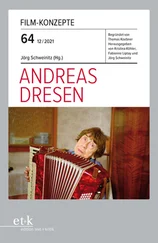Andrea Dworkin - Right-wing Women
Здесь есть возможность читать онлайн «Andrea Dworkin - Right-wing Women» весь текст электронной книги совершенно бесплатно (целиком полную версию без сокращений). В некоторых случаях можно слушать аудио, скачать через торрент в формате fb2 и присутствует краткое содержание. Жанр: Старинная литература, на английском языке. Описание произведения, (предисловие) а так же отзывы посетителей доступны на портале библиотеки ЛибКат.
- Название:Right-wing Women
- Автор:
- Жанр:
- Год:неизвестен
- ISBN:нет данных
- Рейтинг книги:4 / 5. Голосов: 2
-
Избранное:Добавить в избранное
- Отзывы:
-
Ваша оценка:
- 80
- 1
- 2
- 3
- 4
- 5
Right-wing Women: краткое содержание, описание и аннотация
Предлагаем к чтению аннотацию, описание, краткое содержание или предисловие (зависит от того, что написал сам автор книги «Right-wing Women»). Если вы не нашли необходимую информацию о книге — напишите в комментариях, мы постараемся отыскать её.
Right-wing Women — читать онлайн бесплатно полную книгу (весь текст) целиком
Ниже представлен текст книги, разбитый по страницам. Система сохранения места последней прочитанной страницы, позволяет с удобством читать онлайн бесплатно книгу «Right-wing Women», без необходимости каждый раз заново искать на чём Вы остановились. Поставьте закладку, и сможете в любой момент перейти на страницу, на которой закончили чтение.
Интервал:
Закладка:
life. At the time it was the best I knew. Nor am I ashamed of any
desire that has been gratified, nor of any passion alluded to. Every
one of them are a part of m y own soul’s life, for which, thank God,
I am not accountable to yo u . ” 15 Few feminists appreciated her
(Elizabeth C ady Stanton was an exception, as usual) because she
confronted women with her own sexual vitality, the political meaning of sex, the sexual and economic appropriation of women’s bodies by men, the usurpation of female desire by men for the
purposes of their own illegitim ate power. She was direct and impassioned and she made women remember: that they had been raped. In focusing on the apparent and actual sexual worth of
wives and whores, she made the basic claim of radical feminism: all
freedom, including sexual freedom, begins with an absolute right
to one’s own body— physical self-possession. She knew too, in
practical as well as political terms, that forced sex in marriage led
to forced pregnancy in marriage: “I protest against this form of
slavery, I protest against the custom which compels women to give
the control of their maternal functions over to anybody. ” 16
Victoria Woodhull exercised sexual intelligence in public discourse, ideas, and activism. She is one of the few women to have done so. T his effort required all the other kinds of intelligence that
distinguish humans from animals: literacy, intellect, creative intelligence, moral intelligence. Some consequences of sexual intelligence become clear in Woodhull’s exercise of it: she made the women she addressed in person and in print face the sexual and
economic system built on their bodies. She was one of the great


philosophers of and agitators for sexual freedom—but not as men
understand it, because she abhorred rape and prostitution, knew
them when she saw them inside marriage or outside it, would not
accept or condone the violence against women implicit in them.
“I make the claim boldly, ” she dared to say, “that from the very
moment woman is emancipated from the necessity of yielding the
control of her sexual organs to man to insure a home, food and
clothing, the doom of sexual demoralization will be sealed. ” 17
Since women experienced sexual demoralization most abjectly in
sexual intercourse, Woodhull did not shy away from the inevitable
conclusion: “From that moment there will be no intercourse except
such as is desired by women. It will be a complete revolution in
sexual matters. . . ” 18 Intercourse not willed and initiated by the
woman was rape, in Woodhull’s analysis. She anticipated current
feminist critiques of intercourse—modest and rare as they are—by
a century. As if to celebrate the centennial of Woodhull’s repudiation of male-supremacist sexual intercourse, Robin Morgan in 1974
transformed Woodhull’s insight into a firm principle: “/ claim that
rape exists any tim e sexual intercourse occurs when it has not been initiated
by the w om an , out o f her own genuine affection and d e s ir e ” 19 This
shocks, bewilders—who can imagine it, what can it mean? Now as
then, there is one woman speaking, not a movement. *
Woodhull was not taken seriously as a thinker, writer, publisher,
journalist, activist, pioneer, by those who followed her—not by
the historians, teachers, intellectuals, revolutionaries, reformers;
not by the lovers or rapists; not by the women. Had she been part
of the cultural dialogue on sexual issues, the whole subsequent development of movements for sexual freedom would have been different in character: because she hated rape and prostitution and
*In a recent essay, novelist Alice Walker wrote:. . I submit that any
sexual intercourse between a free man and a human being he owns or
controls is rape. ” (See “Embracing the Dark and the Light, ” Essence , July
1982, p. 117. ) This definition has the advantage of articulating the power
that is the context for as well as the substance of the act.


understood them as violations of sexual freedom, which male liber-
ationists did not. But then, this was w hy she was excluded: the
men wanted the rape and prostitution. She threatened not only
those sacred institutions but the male hallucinations that prettify
those institutions: those happy visions of happy women, caged, domesticated or wanton, numb to rape, numb to being bought and sold. Her sexual intelligence was despised, then ignored, because
of what it revealed: he who hates the truth hates the intelligence
that brings it.
Sexual intelligence in women, that rarest intelligence in a male-
supremacist world, is necessarily a revolutionary intelligence, the
opposite of the pornographic (which sim ply reiterates the world as
it is for women), the opposite of the w ill to be used, the opposite of
masochism and self-hatred, the opposite of “good woman” and
“bad woman” both. It is not in being a whore that a woman becomes an outlaw in this man’s world; it is in the possession of herself, the ownership and effective control of her own body, her
separateness and distinctness, the integrity of her body as hers, not
his. Prostitution m ay be against the written law, but no prostitute
has defied the prerogatives or power of men as a class through
prostitution. No prostitute provides any model for freedom or action in a world of freedom that can be used with intelligence and integrity by a woman; the model exists to entice counterfeit female
sexual revolutionaries, gullible liberated girls, and to serve the men
who enjoy them. The prostitute is no honest woman. She manipulates as the wife manipulates. So too no honest woman can live in marriage: no woman honest in her will to be free. Marriage delivers
her body to another to use: and there is no basis for self-respect in
this carnal arrangement, however sanctified it may be by church
and state.
Wife or whore: she is defined by what men want; sexual intelligence is stopped dead. Wife or whore: to paraphrase Thackeray, her heart is dead (“Her heart was dead long before her body. She
had sold it to become Sir Pitt C raw ley’s wife. Mothers and daugh


ters are making the same bargain every day in Vanity Fair” 20).
Wife or whore: both are fucked, bear children, resent, suffer, grow
numb, want more. Wife or whore: both are denied a human life,
forced to live a female one. Wife or whore: intelligence denied,
Читать дальшеИнтервал:
Закладка:
Похожие книги на «Right-wing Women»
Представляем Вашему вниманию похожие книги на «Right-wing Women» списком для выбора. Мы отобрали схожую по названию и смыслу литературу в надежде предоставить читателям больше вариантов отыскать новые, интересные, ещё непрочитанные произведения.
Обсуждение, отзывы о книге «Right-wing Women» и просто собственные мнения читателей. Оставьте ваши комментарии, напишите, что Вы думаете о произведении, его смысле или главных героях. Укажите что конкретно понравилось, а что нет, и почему Вы так считаете.












